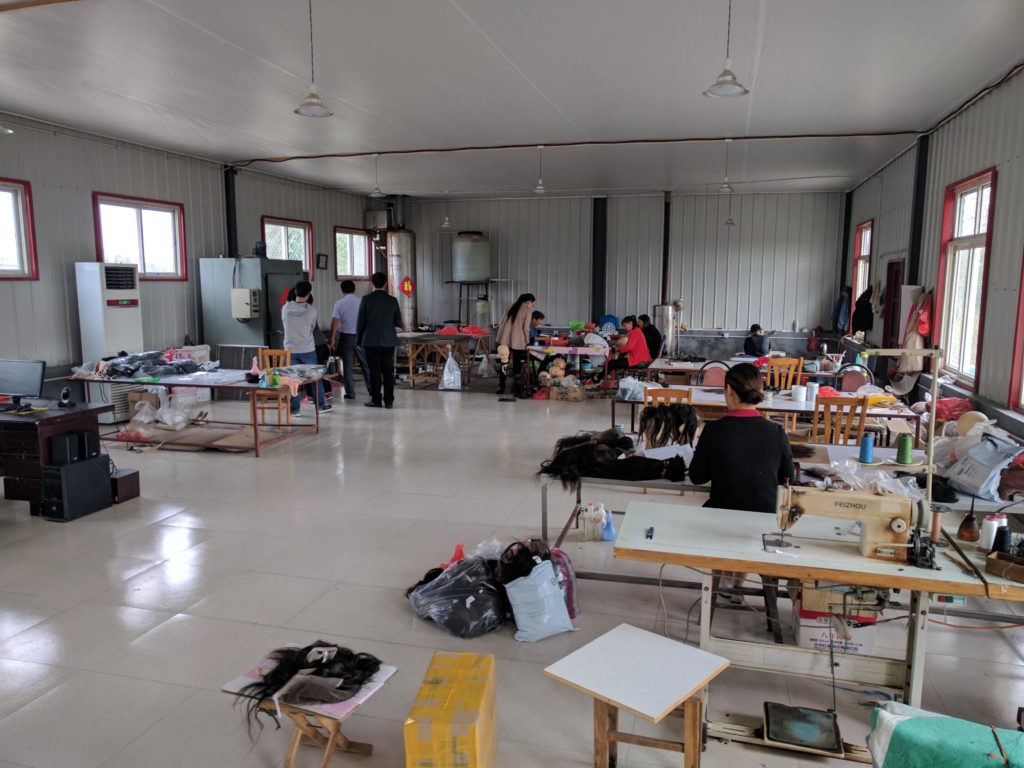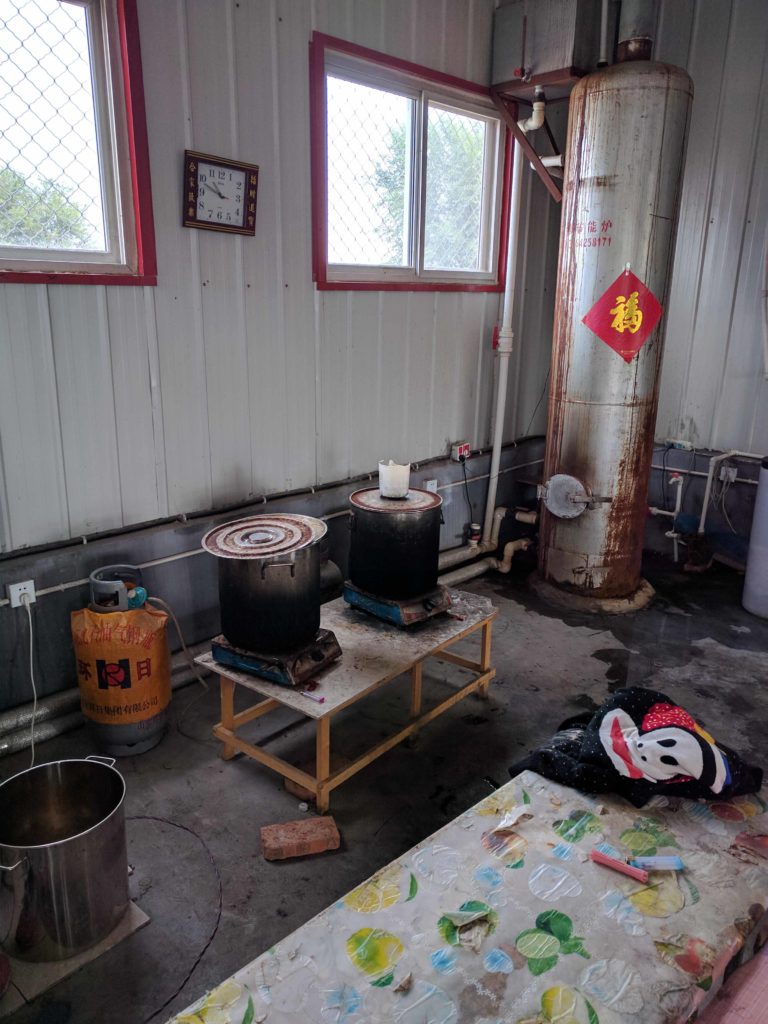The End of Cheap Products from China? Chinese Pollution Controls and How They’ll Affect You
Has the end of cheap products from China finally come?
China has gotten incredibly serious about pollution controls this year and some estimate that as many as 40% of factories have been shut down recently. If you're currently importing any sizable amount of product from China then the chances are good that you've heard some rumblings from suppliers about the recent pollution crackdowns. If you thought this was just your supplier's way to sneak in some price increases then you might be partially correct but these pollution crackdowns are very real.
What are the current pollution controls in China all about, how does it effect your business, and, most importantly, is this the end of cheap products from China?
Pollution Controls in China – What is Happening
Long story short, the Chinese government is cracking down big time on factories that are irresponsible polluters in China and shutting them down left and right. The focus has largely been on smaller factories in Northern China in provinces like Hebei and Shandong but factories all throughout China have been targeted.

The Chinese government for quite a few years now has been well aware of the huge environmental catastrophe that has been occurring in most parts of China due to the huge economic boom and industrialization it has been experiencing. However, now it has been taking it REALLY seriously.
Some might say China got really serious around March 5, 2016 when Premier Li Keqiang called for “heavy blows” to be struck against air and water pollution. However, in my experience and from talking with other importers, this all didn’t start to make any influence on manufacturing until earlier this year in 2017. This is when importers started to see price increases or, worse, supply shortages.
In the past, factory owners would simply bar entry from environmental enforcement officers or simply illegally detain them. Now the Central Environmental Inspection teams have been described as “‘imperial envoys”.
Pollution Controls – A Real Example Involving North Korea and Moonlighting Factories
I've known about the pollution crackdown for a few months as many of my suppliers have been letting me know that pollution controls are resulting in price increases, particularly on cardboard boxes (my boxes have increased up to 100% in the last several months). At first I thought it was just another way for suppliers to get some increased margin until I did some factory visits this October.
I have a friend producing some hair extensions – she sells real human hair sourced from women in India and then assembled in China. Cleaning, dyeing, and assembling hair produces a LOT of chemical byproducts. Doing it on an industrial scale involves more than your usual Palmolive Shampoo and Conditioner. It involves some real harsh chemicals.

My friend's first factory — their original factory — had in fact been shut down due to the smoke their factory was putting off and they had been forced to move to an obscure location in the Shandong country side. When I inquired about whether this new factory would simply be shut down once the authorities caught sight of it the factory owner reassured us that it wasn't a problem as they they had a solution: they would simply operate the factory at night when no one could see the smoke from the factory.

The next day we visited a second factory and again inquired about the pollution controls. The authorities had not yet shut down their factory but the factory reassured that it wasn't a problem as they had a solution: they had a friend who would smuggle the hair into North Korea to be assembled there and smuggled back in to China to be exported.
Pollution Control – Who is Affected
The industries most heavily affected are the ones who are guilty of heavily polluting the air and water. These factories typically share some of the following features:
- Smaller factories without adequate pollution controls
- Factories in northern Chinese provinces such as Hebei, Shanxi, Shandong and Henan
- Metal/Steel factories
- Textile factories doing a lot of dyeing
- Any factories producing a lot of smoke and/or polluted waters
- Any paper products, specifically cardboard
Essentially any factory that produces a lot of smoke and/or polluted water could be subject to being shut down. Most of us have little idea what the effects of producing our items have on the environment but two really common examples of products largely affected are any steel/metal products and textiles requiring a lot of metal. If you're importing blue jeans or steel frying pans your factories could be in trouble.
The factories most likely to be shut down are smaller factories without adequate pollution controls in place. It's a gross generalization, but in my experience, factories with 20 or fewer people generally lack much regard for the environment.
There is one product that will affect almost all importers and that is paper products, including cardboard. Almost all of us have products comprising some paper products and almost all paper products have experienced 100% or greater price increases.
What Can You Do?
- Be prepared for significant price increases if you're in an affected industry.
- If you're dealing with a small factory, be aware that they may be shut down. Consider a third party audit of them and be wary of placing large deposits.
- Expect delays and lengthen your lead times
As I witnessed first hand, in the short term factories are simply finding ‘creative' ways to get around the pollution controls. These are short term measures and ultimately they're not sustainable. In the long term, factories will either need to shut down or produce products in more eco-friendly ways which will drive up costs either way.
If you're dealing with a smaller factory I would be very cautious about placing large deposits without paying the $300 for an environmental audit by a third party inspection company like Asia Inspection. Your factory might get shut down, go bankrupt, and you'll be out your deposit.
Conclusion
China is finally getting serious on pollution crack downs. As a frequent visitor of China, to me this is a good thing, even if it ultimately means higher prices on products. In my opinion, it may also signal the end to ridiculously cheap products from China. Since the 80's when China opened up to the West, Western countries have basically been outsourcing all of the factories to China which produced too much pollution for us Western countries. While the short term consequences will be highest for importers, consumers will likely ultimately pay the bill. If the end result is a cleaner world, that's probably not a bad thing.




Nice read, I just passed this onto a friend who was doing a little research on that. And he actually bought me lunch because I found it for him smile Thus let me rephrase that: Thanks for lunch!